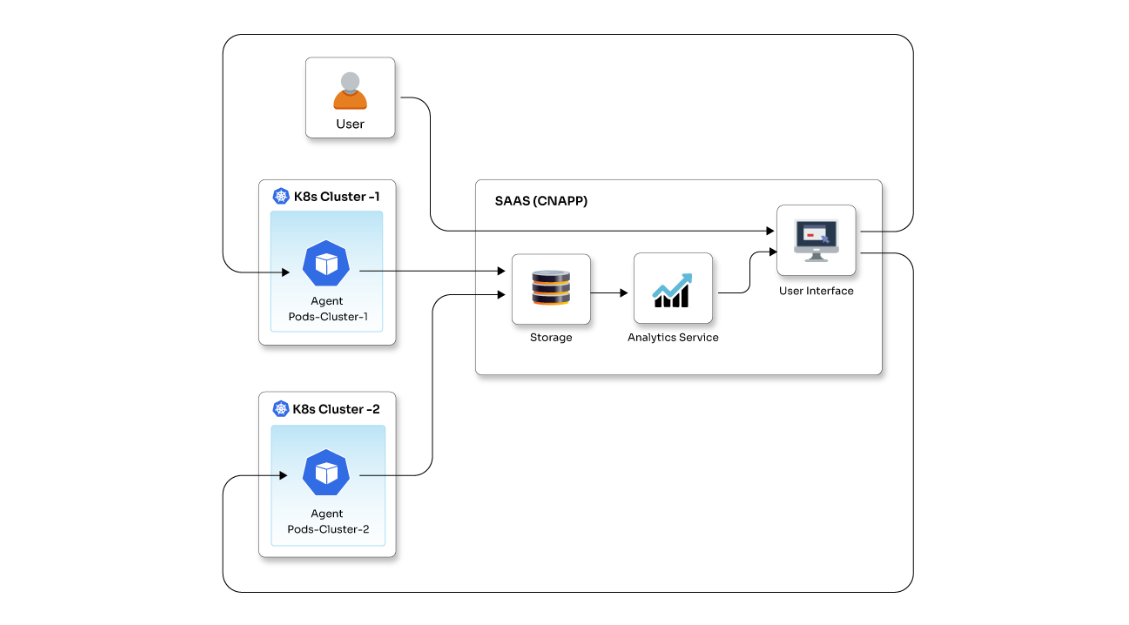TypeScript: The future of web development (front-end & back-end)

Posted By
Sachin Warke

TypeScript has been gaining steady momentum and popularity among the developer community and has become an essential tool in today’s web development ecosystem. Developers swear by it as a core tool for many front-end and back-end tasks. I've been working with TypeScript extensively, and I want to share my perspective on why it's become so popular, and how it can benefit your projects.
What is TypeScript? (and is it front-end or back-end?)
Let's clarify this quickly: TypeScript, created and supported by Microsoft, is a widely used superset of JavaScript. It is neither a front-end nor a back-end language itself. It compiles down to JavaScript, which can then be used on the front-end (in browsers) or the back-end (with Node.js). While often used in front-end development, it's equally applicable to back-end projects.
This means if your code runs in JavaScript, it'll run in TypeScript too. However, TypeScript adds features like static typing and class-based object-oriented programming. Static typing enables compile-time type checking, significantly reducing the chance of runtime errors.
Why the hype? Why is TypeScript gaining popularity?
I have thoroughly enjoyed using TypeScript in various projects. In my experience, TypeScript's popularity has surged due to these key factors:
- Type safety – catching bugs early: This is the big one. TypeScript's static typing acts like a safety net that forces you to define the types of your variables and functions. If you try to do something that doesn't make sense (like adding a number to a string), TypeScript will flag it before you even run your code. This drastically reduces the number of runtime errors, saving you hours of debugging time.
- Maintainability – keeping code clean: As projects grow and become more complex, TypeScript's type system makes it much easier to understand and maintain large codebases. It acts as a form of living documentation, clarifying what each piece of code should do. This is especially helpful when working in teams.
- Developer experience – productivity boost: Modern IDEs like VS Code have fantastic TypeScript support. Features like autocompletion (IntelliSense) predict and suggest code completions based on context and types, inline documentation provides immediate access to information about functions, classes, and properties, while real-time error checking (diagnostics) catches type mismatches and other issues as you type. These, along with refactoring, go-to-definition, and debugging tools, create a highly productive environment for accurate and efficient TypeScript development.
- Object-oriented programming (OOP) power: TypeScript's robust support for object-oriented programming (OOP) principles like interfaces, generics, and decorators empowers developers to build complex, modular, and maintainable applications with reusable and scalable code. These tools, combined with TypeScript's type system, make it ideal for large projects where structure and error prevention are crucial.
- Industry adoption: Major organizations trust TypeScript for getting different tasks done. LinkedIn uses it for frontend projects. Google’s Angular is built on TypeScript. Other popular frameworks like React, and Vue too, have excellent TypeScript support, which speaks volumes about their effectiveness.
Write effective unit tests for your React TypeScript applications..
What is TypeScript’s impact on your code and products
TypeScript's benefits go beyond just cleaner code. They have a tangible impact on the projects that I've worked on.
- Scalability: TypeScript makes it easier to scale applications without introducing many bugs. The structured approach it encourages helps keep things organized as your project grows.
- Reduced debugging: Fewer runtime errors mean less time spent debugging. This translates to faster development cycles and quicker releases.
- Improved team collaboration: TypeScript helps ensure code consistency, making it easier for teams to work together effectively. It lessens the "What does this code do?" moments.
Where can you use TypeScript?
The short answer is almost anywhere you use JavaScript.
- Front-end development: TypeScript works excellently with React, Angular, Vue, and other front-end frameworks.
- Back-end development: Build robust server-side applications with Node.js and TypeScript.
- Mobile development: Use TypeScript with React Native for cross-platform mobile apps.
- Serverless and cloud functions: TypeScript fits AWS Lambda, Firebase Functions, and other serverless environments well.
Should you use TypeScript?
TypeScript is valuable because its ability to catch errors early, improve code maintainability, and enhance developer productivity makes it a must-have for any serious development. If you're working on any project of significant size or complexity, I highly recommend giving TypeScript a serious look. The initial learning curve might seem a little steep, but the long-term benefits in terms of code quality, maintainability, and developer productivity are well worth it.
We've seen these benefits firsthand in numerous projects for our customers. If you're not already using it, now's the perfect time to jump on board. You won't regret it. Opcito’s software product engineering experts leverage the power of TypeScript to build robust, scalable, and maintainable applications for clients. Our software development services are designed to help businesses like yours ship faster, scale smarter, and stay ahead of the curve. Want to learn more about how we can help you harness the power of TypeScript? Get in touch with us and let’s make it happen.
Related Blogs




















